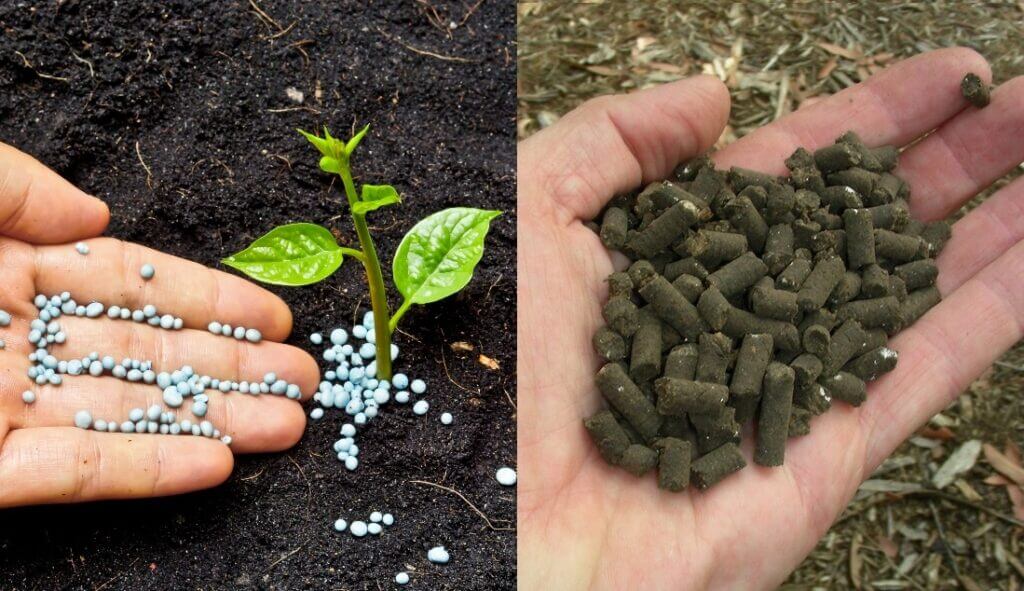What Are The Differences Between Chemical and Organic Fertilizers?
The key differences between chemical and organic fertilizers lie in their composition, how they deliver nutrients to plants, and their overall impact on the soil and environment.
1. Composition of organic and chemical Fertilizers:
- Chemical Fertilizers: These are synthetically manufactured and contain mineral salts that can provide a quick release of nutrients. They typically have a high concentration of the three primary nutrients: nitrogen (N), phosphorus (P), and potassium (K), often in specific ratios like 10-10-10.
- Organic Fertilizers: These are derived from natural sources such as plant, animal, or mineral matter. They include materials like compost, manure, bone meal, and seaweed. Organic fertilizers not only supply primary nutrients but also a variety of micronutrients and organic matter.
2. Nutrient Delivery of organic and chemical Fertilizers:
- Chemical Fertilizers: They quickly release nutrients into the soil, offering a fast but short-lived nutritional boost. This rapid release can lead to a sudden growth spurt in plants.
- Organic Fertilizers: These break down more slowly, providing a gradual, sustained release of nutrients. This mimics the natural nutrient cycle and promotes steady, healthy plant growth.
3. Soil Health and Environment:
- Chemical Fertilizers: While effective in the short term, they can, over time, degrade soil structure and lead to a reduction in soil fertility. They can also contribute to nutrient runoff into waterways, potentially causing environmental issues like eutrophication.
- Organic Fertilizers: These improve soil structure and enhance its ability to hold water and nutrients. They support the biodiversity of the soil by encouraging beneficial microbial activity. Organic fertilizers are generally considered more environmentally friendly.
4. Long-Term Impact of organic and chemical Fertilizers:
- Chemical Fertilizers: Continuous use can result in a build-up of salts in the soil, which can harm plant roots and decrease soil microbial activity, leading to long-term soil degradation.
- Organic Fertilizers: They enrich the soil over time, improving its quality and fertility. This can lead to better plant health and resistance to pests and diseases in the long run.
Chemical fertilizers offer a quick nutrient boost but can have negative long-term effects on soil health and the environment. Organic fertilizers release nutrients more slowly, improve soil health over time, and are generally more sustainable and eco-friendly. The choice between the two depends on immediate needs, long-term gardening goals, and environmental considerations.
Advice When Using Chemical or Organic Fertilizers
Advice on Chemical Fertilizers
Read Instructions Carefully: Every chemical fertilizer comes with specific instructions. It’s crucial to follow these to avoid over-fertilization, which can harm your lawn.
Balance is Key: Pay attention to the N-P-K (Nitrogen, Phosphorus, Potassium) ratio on the package. Your lawn’s needs may change throughout the year, so choose the blend wisely.
Store Safely: Keep these fertilizers in a dry, safe place away from pets and children. Chemical fertilizers can be hazardous if mishandled.
Use Sparingly: Remember, a little goes a long way. Overuse can lead to nutrient runoff, which is harmful to the environment.
Regular Monitoring: After application, keep an eye on your lawn for any signs of stress or burning, which can indicate overuse or uneven application.
Advice on Organic Fertilizers
Give it Time: Organic fertilizers release nutrients slowly. Don’t expect instant results; patience is key for a lush lawn.
Know Your Sources: Understand where your organic fertilizer comes from. Some options include compost, bone meal, or seaweed extracts.
Application Techniques: Since they’re often liquid, apply them using a sprayer or mix them into the watering routine. Make sure to distribute them evenly.
Check Compatibility: If you’ve been using chemical fertilizers, transitioning to organic might require some adjustment. Your soil’s pH and microbial activity can affect how well organic fertilizers work.
Enrich the Soil: Organic fertilizers do more than feed the plants; they improve soil health over time, so consider them as a long-term investment for your garden.


